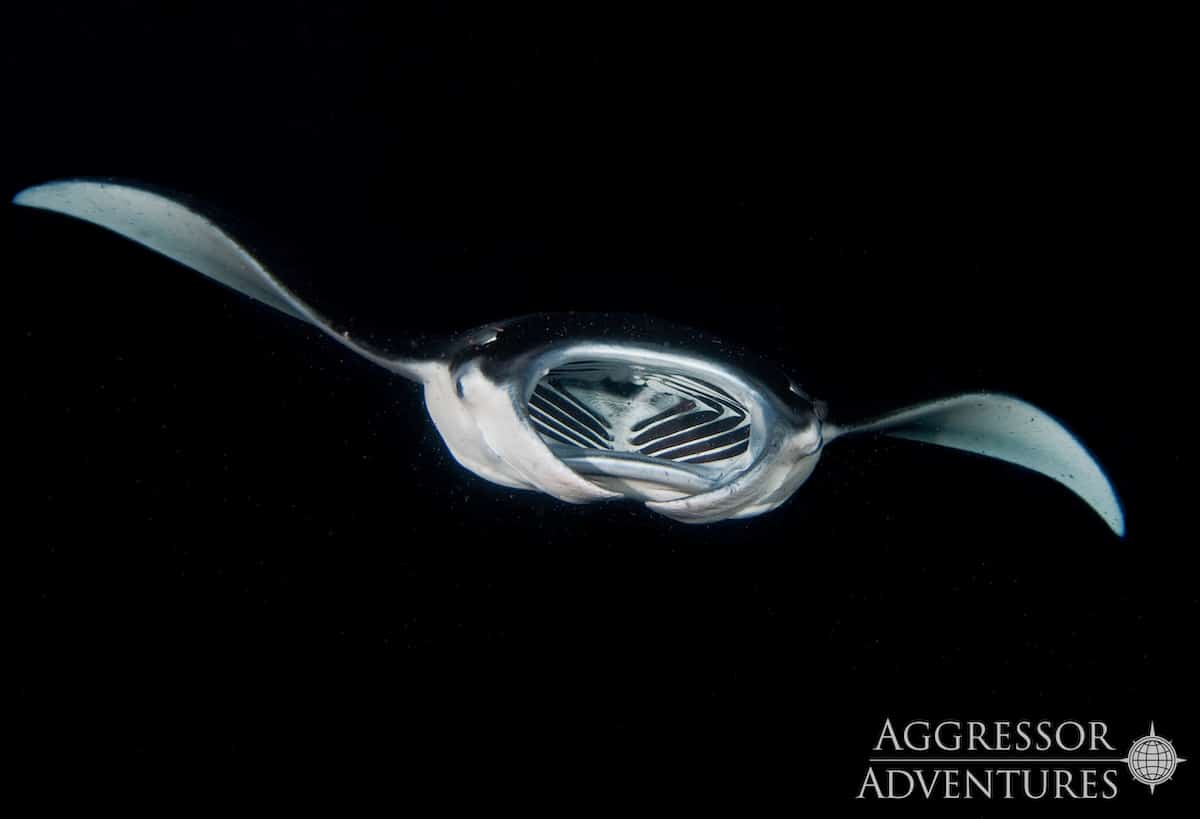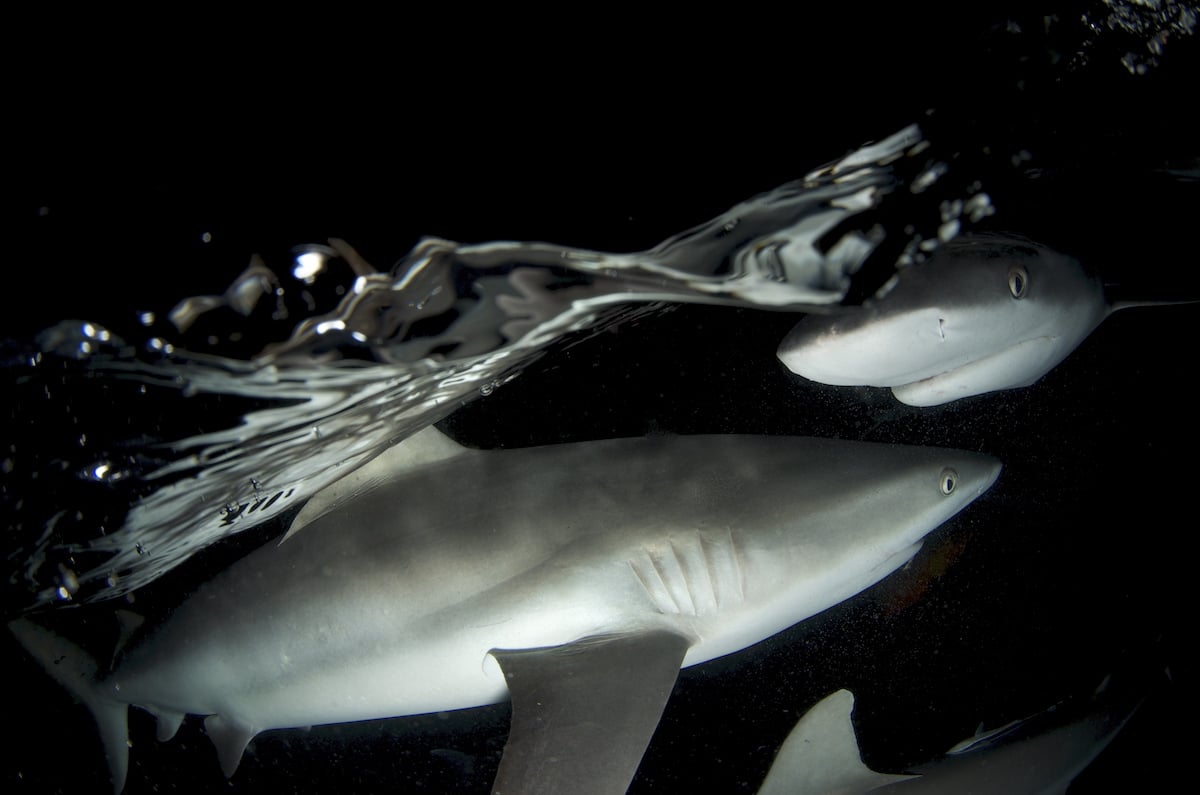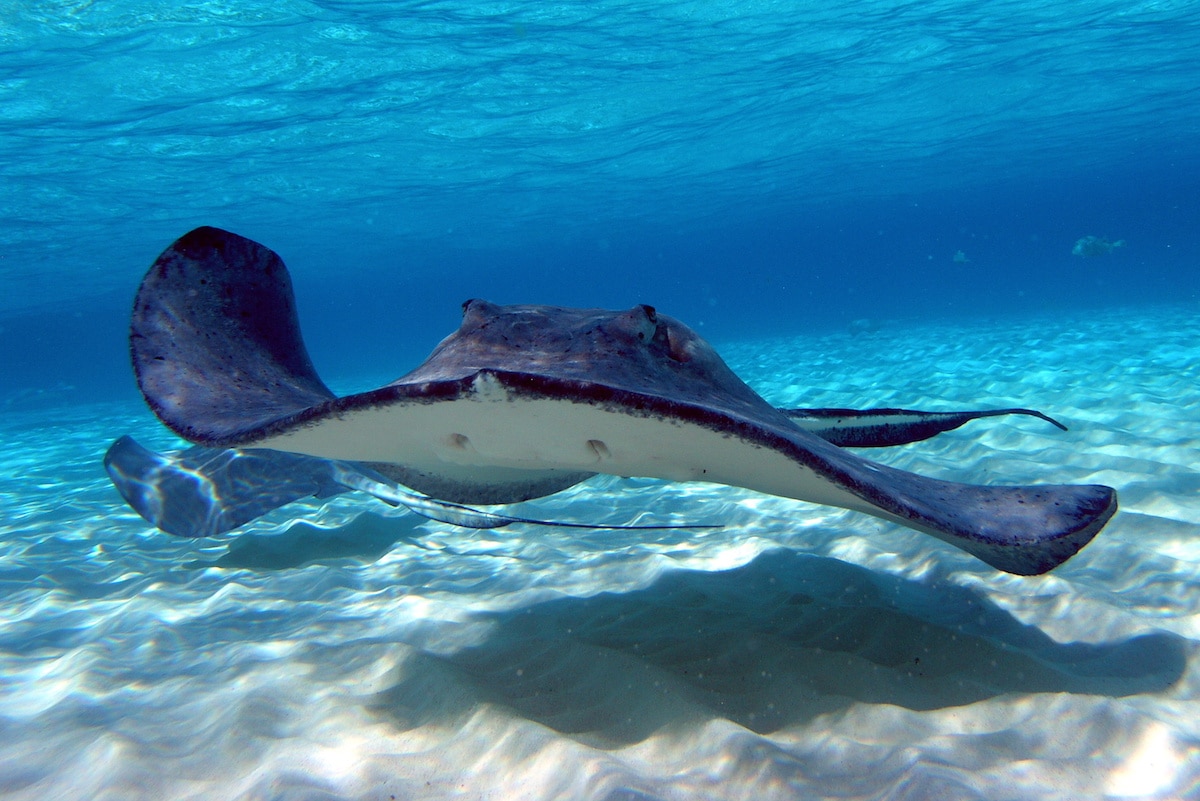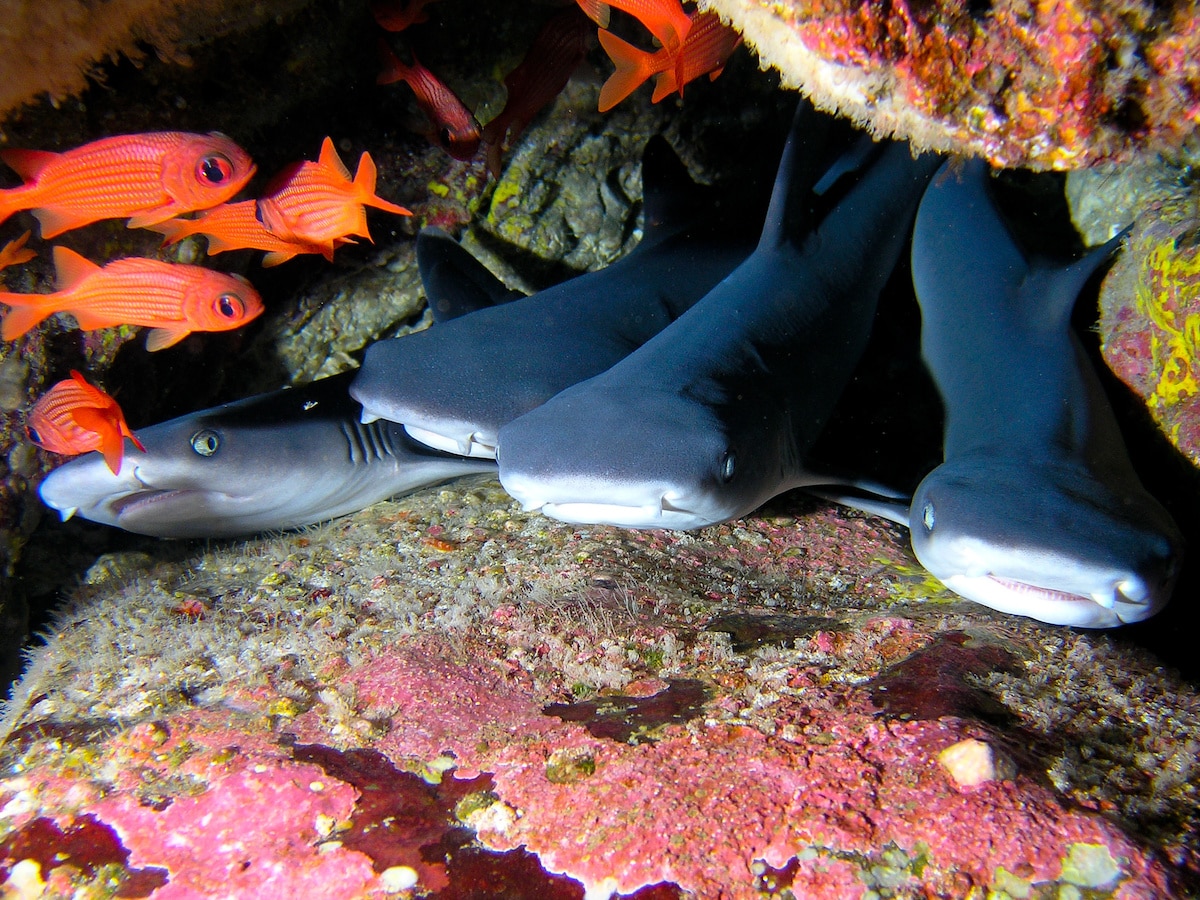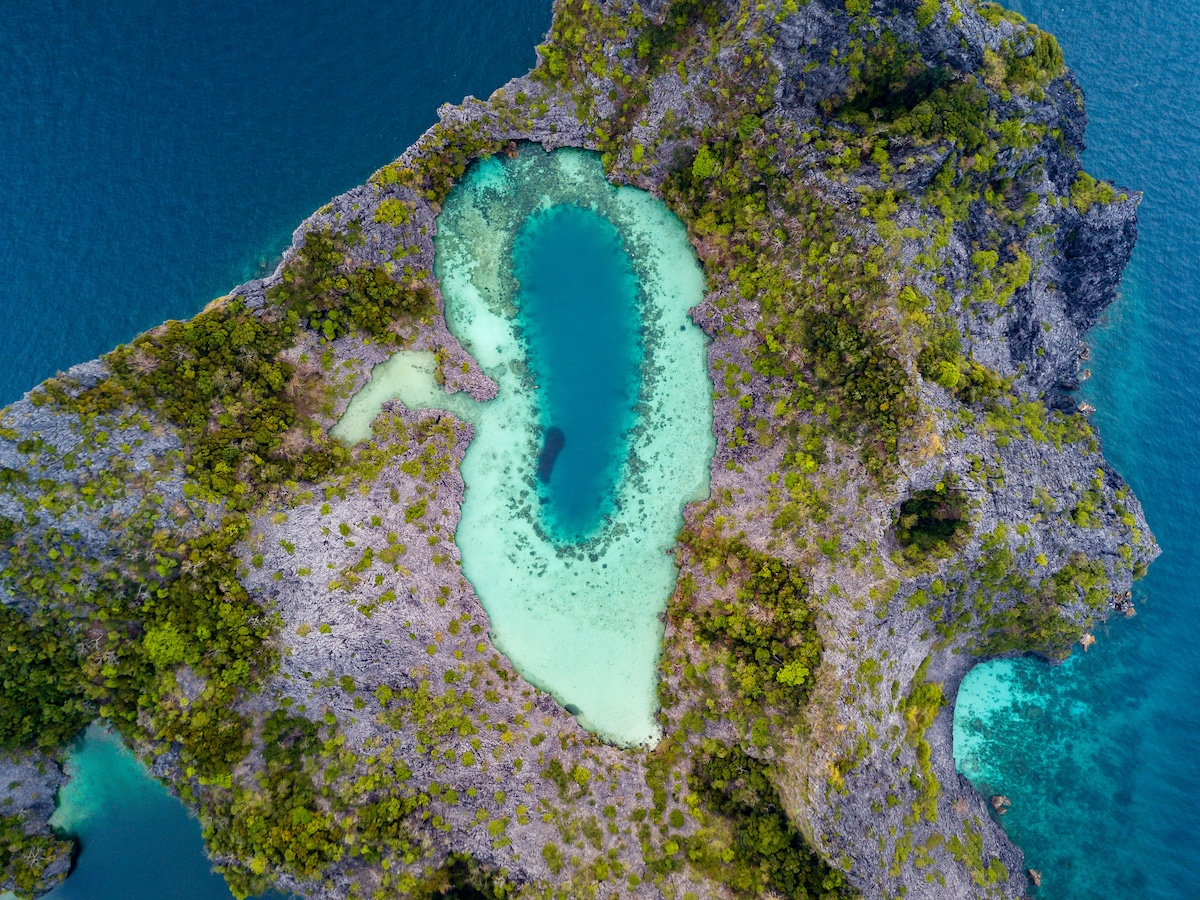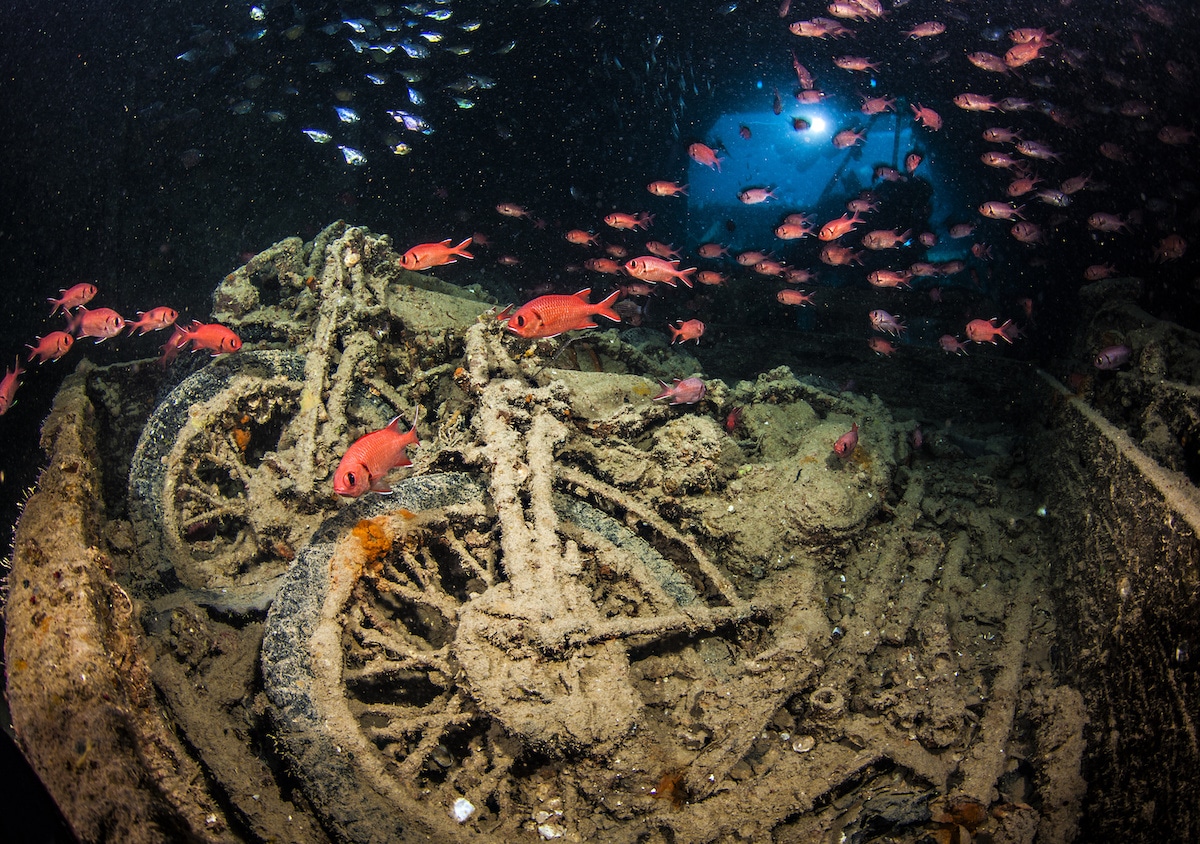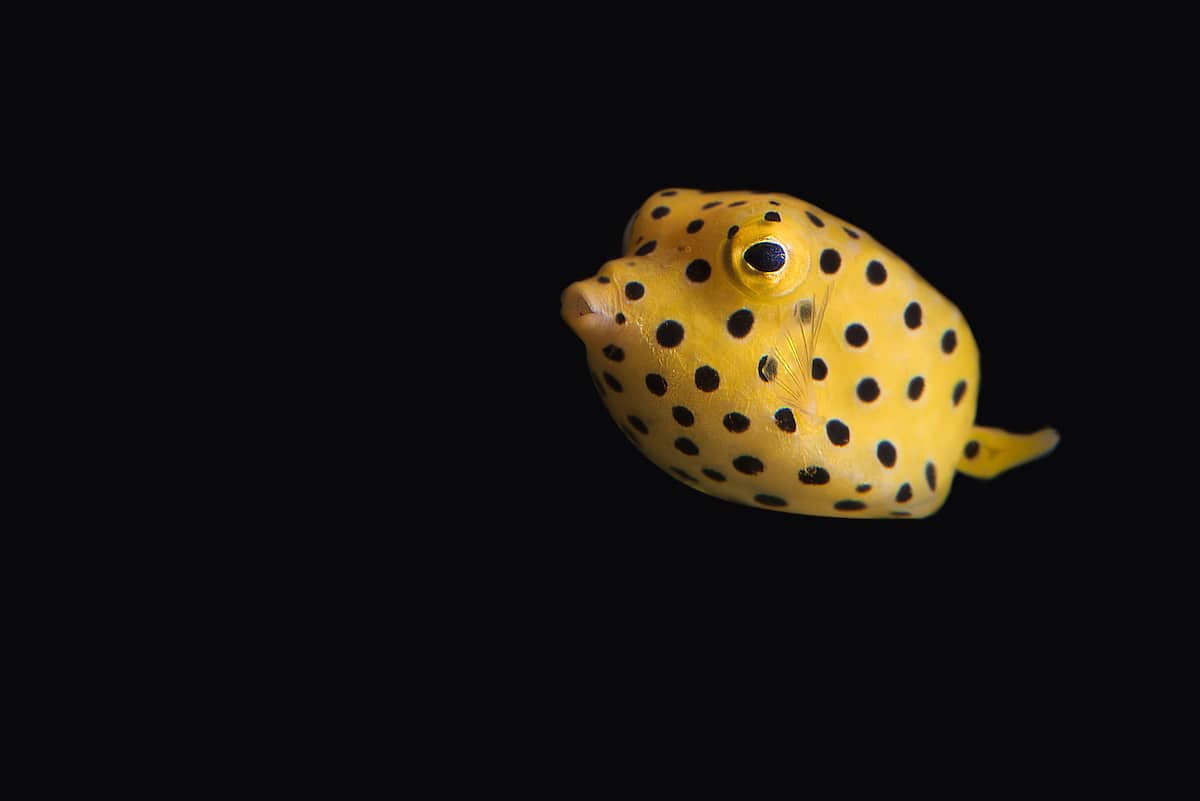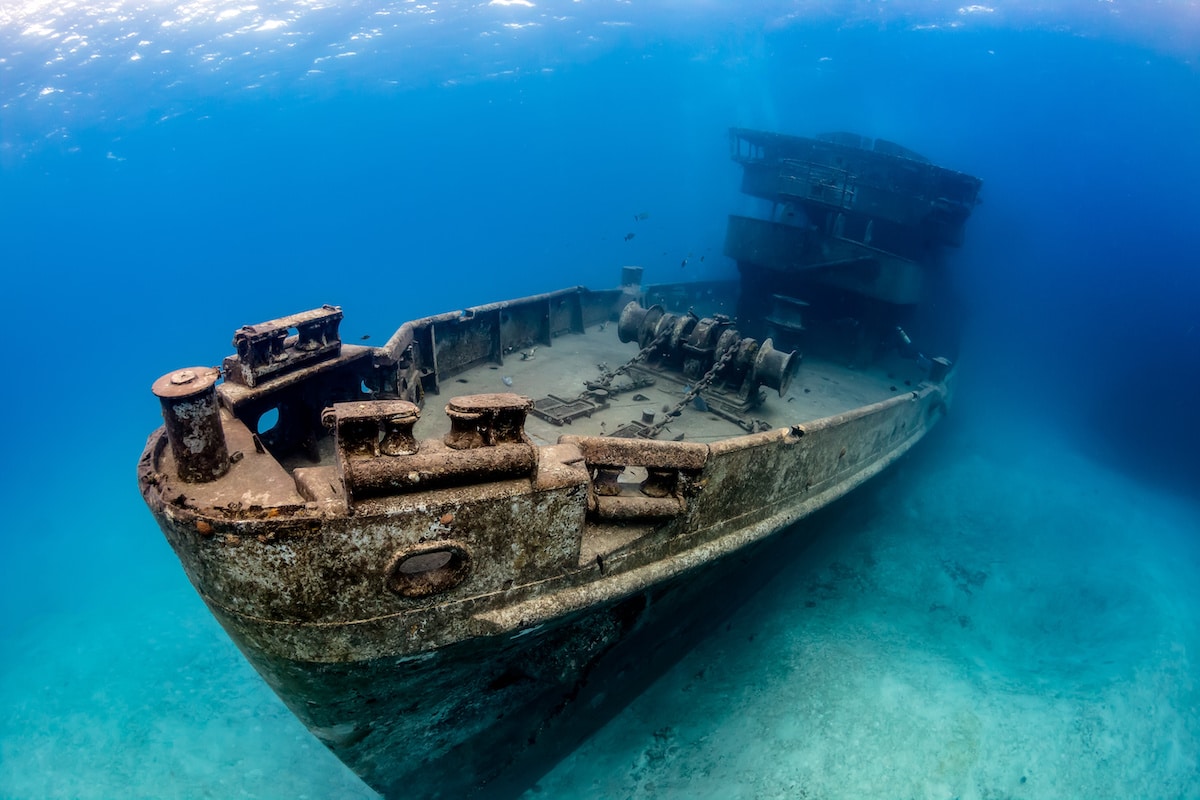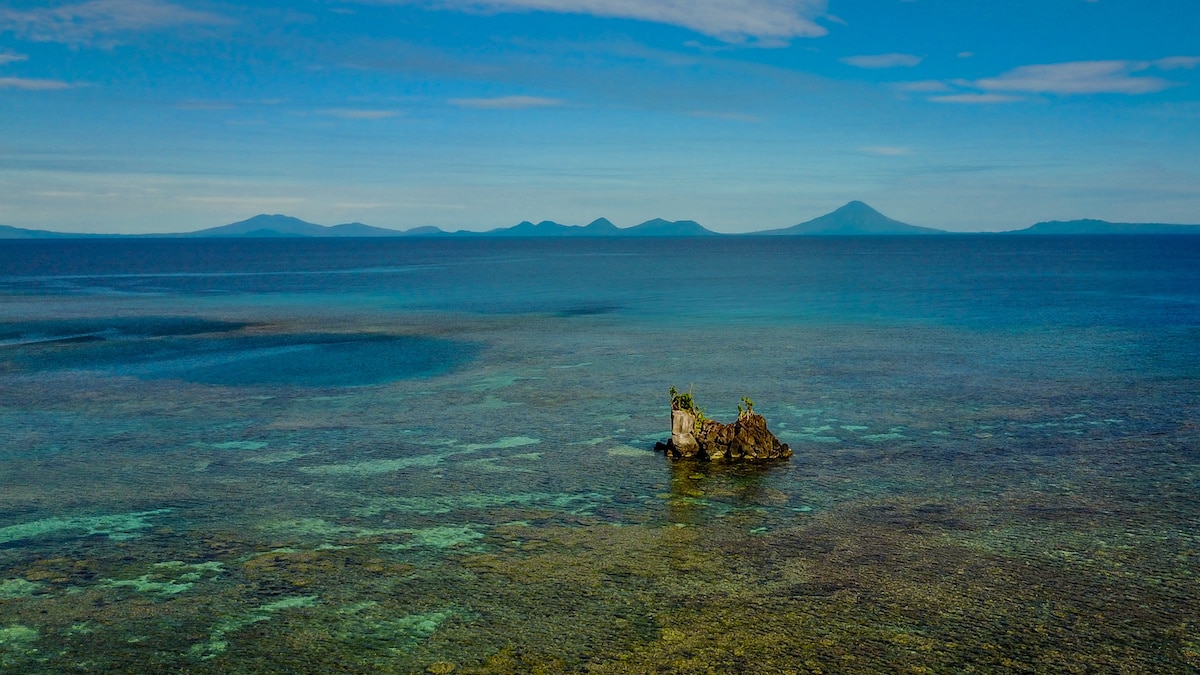This article was written by divers and writers at LiveAboard.com
News
10 Best Night Diving Destinations

Go night diving and you’ll see the ocean in an entirely different way as your torch beam lights up reefs busy with activity. Different marine life come out at night and predators such as lionfish and sharks become much more active. It’s a great type of diving for renewing your interest in familiar dive sites and makes you pay attention to one small dive site area at a time.
Don’t miss it. Here are our top night dives to try around the world…
-
Hawaii
Image: Aggressor AdventuresHawaii is renowned for its exceptional night diving with manta rays. Go night diving off Kona and you can watch manta rays barrel-roll and feed in the light of your torch. Suitable for snorkelers and divers alike, it’s one of the best night dive experiences in the world.
The Kona Aggressor II offers manta night dives as part of their Hawaii liveaboard safaris.
-
Great Barrier Reef, Australia
There are a variety of fun options for night diving at the Great Barrier Reef.
The OceanQuest liveaboard offers outer reef Shark in the Dark night dives, giving you a chance to swim with numerous reef sharks at night. You can also try Fluoro Night Diving with this liveaboard. Specialist torches and mask filters are used to bring fluorescent underwater landscapes to life.
For a real spectacle, visit the Great Barrier Reef during a mass coral spawning event. These events are witnessed by few people and occurs at the reef between November and December each year. Flynn Reef has a great variety of corals and is known for its spawning events. You can see this during night dives with the Pro Dive Cairns fleet.
-
Maldives
Maldives scuba diving is famed for diverse diving amidst idyllic atolls. Don’t miss a liveaboard safari to Felidhoo Atoll for a real Maldivian highlight. You can go night diving with huge numbers of nurse sharks and stingrays at Felidhoo’s Alimatha Jetty dive site.
Coming close to divers, the sharks and rays provide great photographic opportunities against the dark waters.
The Scubaspa fleet and Duke of York offer safaris that include this special dive.
-
Costa Rica
Costa Rica is paradise for shark diving during the day and doesn’t disappoint at night either. Be sure to take a dive at Manuelita Coral Garden for the chance to dive with numerous hunting whitetip sharks. Emerging to hunt fish, crustaceans and octopi, these flexible and fast-paced sharks are fascinating to watch in action when the sun goes down.
-
Myanmar
Myanmar is still relatively off the radar for most divers and yet it offers diverse marine ecosystems and hundreds of unexplored islands, just perfect for liveaboard cruises. Great Swinton Island is a good spot for coral reef night dives and bioluminescence.
Shark Cave offers night diving along a wall and rocky outcrops with plenty of marine life. Look carefully and you might spot decorated sponge crabs, plus Durban dancing and mantis shrimps.
-
Egypt’s Red Sea
Both Tiran in the north and Elphinstone in the south offer great Egypt night diving. Dive in and you can explore dramatic walls and reefs as you watch lionfish hunt in the light of your torch. For an eerie experience, try night diving the huge Thistlegorm wreck. Impressive during the day, this wreck is even more so at night.
-
The Philippines
Teeming with life, thanks to its position in the Coral Triangle, the Philippines Visayas islands offers exceptional diving both day and night. If you’re a fan of muck diving, make sure you go muck night diving in the Visayas. The light from your torch will bring the colours of critters to life, making excellent photographs.
-
Indonesia
Another great spot for night diving, the Lembeh Strait is known as the ‘muck diving capital of the world’. Home to an array of weird and wonderful critters it is not to be missed. Many of the critters are very active at night, making Lembeh Strait even better at night than during the day.
This is especially so at Nudi Falls. This wall drops down to a coral field and sandy bottom, where you can spot cuttlefish, rare nudibranchs and more.
-
Cayman Islands
You can try your hand at wreck night diving at the Cayman Islands. The USS Kittiwake is ideal for night dives as she has spacious corridors and clear waters, making her easy to navigate. You can also night dive the Balboa and Ore Verde wrecks. The Cayman Aggressor V offers safaris that include wreck night dives.
-
Papua New Guinea
To truly get away from it all, go long-haul and explore the pristine waters of Papua New Guinea. Seemingly left behind by the modern world, the islands of PNG have untouched dive sites busy with marine life. Go night diving and you can explore PNG’s crystal-clear lagoons, enjoying the diverse macro and reef life found there. With few other divers around, it’s like exploring a whole new world.
What Night Diving gear do you need?
You’ll need a good dive torch for night dives. It’s a good idea to take a spare torch and attach a marker to your BCD or tank so you can be seen easily by your buddy and guide.
What diving skills do night divers need?
- The most important skill you need is the ability to stay calm
- It can be unnerving diving in the dark at first, so relax and stay close to your buddy and dive group
- It’s worth practising the signals you’ll use during your night dive, as torch signals are often used in place of hand signals
- Set up and check your equipment during the day, or under adequate lighting, so you don’t miss something
Gear News
Introducing the TR-80, IR-50 and CS-30 Regulators from DYNAMICNORD

Whether you are a beginner or a professional diver – with the three new main regulators from DYNAMICNORD, everyone will find their favourite regulator. They all look super stylish.
Excellent performance with the TR-80
Quality and performance are the be-all and end-all for regulators. It is not for nothing that the TR stands for Tec Reg. The innovative design of the TR-80 guarantees absolute reliability – even in ice-cold waters.

Perfect breathing effort at 0.8 J/l / certified for diving in waters below 10 degrees / structural design made of solid brass for best cold protection / membrane-compensated design with dry seal of the first stage / reduced exhalation effort thanks to optimized exhalation membrane and bubble deflector / adjustable Venturi (dive/predive) and adjustment knob for individual inhalation comfort / innovative design of the front cover prevents free-flow in strong currents or when diving with scooters / design made of sandblasted brass, matt chrome finish / 2 HP and 4 LP outlets / mouthpiece made of high-quality, anti-allergic silicone for maximum comfort.


Amazing underwater adventures with the IR-50
The IR-50 is the top regulator for advanced and experienced divers. Natural breathing is the essence of this regulator.

Ideal breathing effort at 0.8 J/l /certified for diving in waters below 10 degrees / compensated membrane / adjustable venturi (dive/predive) and adjustment knob for individual inhalation comfort/ outlet valve and deflector for minimum exhalation effort and reduction of bubbles on the face / design made of sandblasted brass, matt chrome finish / 2 HP and 4 NP outlets / mouthpiece made of high-quality, anti-allergic silicone for maximum comfort.


The Workhorse – our CS-30
For diving centres and diving beginners – the workhorse stands for strong construction, reliability and robustness. Perfect for your training.

Optimal breathing effort at 0.8 J/l /recommended for diving in waters above 10 degrees / non-compensated piston / adjustable venturi (dive/predive) / outlet valve and deflector for minimum exhalation effort and reduction of bubbles on the face / design made of sandblasted brass, matt chrome finish / 1 HP and 3 NP outlets / mouthpiece made of high-quality, anti-allergic silicone for maximum comfort.


Octopus OP-30
The OP-30 is the ideal addition to all DYNAMICNORD regulators. It is identical in construction to the CS-30.

The TR-80, IR-50, CS-30 (DIN & INT) regulators and the Octopus OP-30 are available from DYNAMICNORD dealers and in the online store.
DYNAMICNORD – Your Outdoor Companion.
Marine Life & Conservation
Paul Watson Released as Denmark Blocks Japan’s Extradition Bid

Renowned anti-whaling activist Paul Watson has been released from custody in Greenland after spending five months in detention. Denmark’s Justice Ministry rejected Japan’s request for his extradition, citing insufficient guarantees that his time already served in custody would be credited against any potential sentence.
The 74-year-old Canadian-American was arrested on July 21 in Nuuk, Greenland’s capital, when his ship docked to refuel. His arrest was based on a 2012 Japanese warrant related to a 2010 encounter in Antarctic waters. Japan alleged Watson obstructed operations and caused damage to a whaling research ship during efforts to disrupt illegal whaling. Watson has consistently denied these claims, maintaining his commitment to marine conservation.
Denmark, which oversees extradition matters for Greenland, concluded that while the legal conditions for extradition were met, the lack of assurances from Japan regarding time-served credit made extradition untenable.
In a video shared by his foundation, Watson expressed gratitude and relief, saying, “After five months, it’s good to be out… and good to know they’re not sending me to Japan.” He added that the most difficult part of his time in custody was being separated from his two young sons.
Watson is a pioneering figure in marine conservation, known for founding the Captain Paul Watson Foundation in 2022 after decades of activism with the Sea Shepherd Conservation Society. His bold efforts to defend marine life have earned him widespread support, including from celebrities and conservationists. His work has also been featured in the acclaimed reality TV series Whale Wars.
Watson’s lawyer, Jonas Christoffersen, praised the decision, stating, “We are happy and relieved that Paul Watson is now free.” He added that Watson is eager to reunite with his family and continue his vital work.
The arrest occurred while Watson’s vessel, the M/Y John Paul DeJoria, was en route to the North Pacific with a team of 26 volunteers to intercept a Japanese whaling ship. His foundation described the arrest as politically motivated and emphasized that Watson’s actions were focused on ending illegal whaling practices.
Japan resumed commercial whaling in 2019 after leaving the International Whaling Commission, asserting that whale meat is a cultural tradition. Conservationists, however, continue to challenge these practices, highlighting their impact on marine ecosystems.
Despite the challenges, Watson remains steadfast in his mission to protect marine life and bring attention to whaling practices. His dedication to ocean conservation has made him a globally respected advocate for the environment.
-

 News2 months ago
News2 months agoIconic SS United States to become the World’s Largest Artificial Reef
-

 News3 months ago
News3 months agoBook Review – 52 Assignments: Underwater Photography
-

 Gear News3 months ago
Gear News3 months agoDYNAMICNORD – New German diving brand enters the British market
-

 News3 months ago
News3 months agoExploring Cenote El Pit: A Diver’s Dream
-

 Gear News3 months ago
Gear News3 months agoTry BARE drysuits (and maybe even win one!) this Friday with Sea & Sea at North West Dive Fest
-

 Marine Life & Conservation3 months ago
Marine Life & Conservation3 months agoBook Review: Coral Triangle Cameos
-

 Blogs2 months ago
Blogs2 months agoDive the Egyptian Red Sea this Autumn with Regaldive
-

 News3 months ago
News3 months ago2024 Ocean Art Underwater Photo Competition Announced


